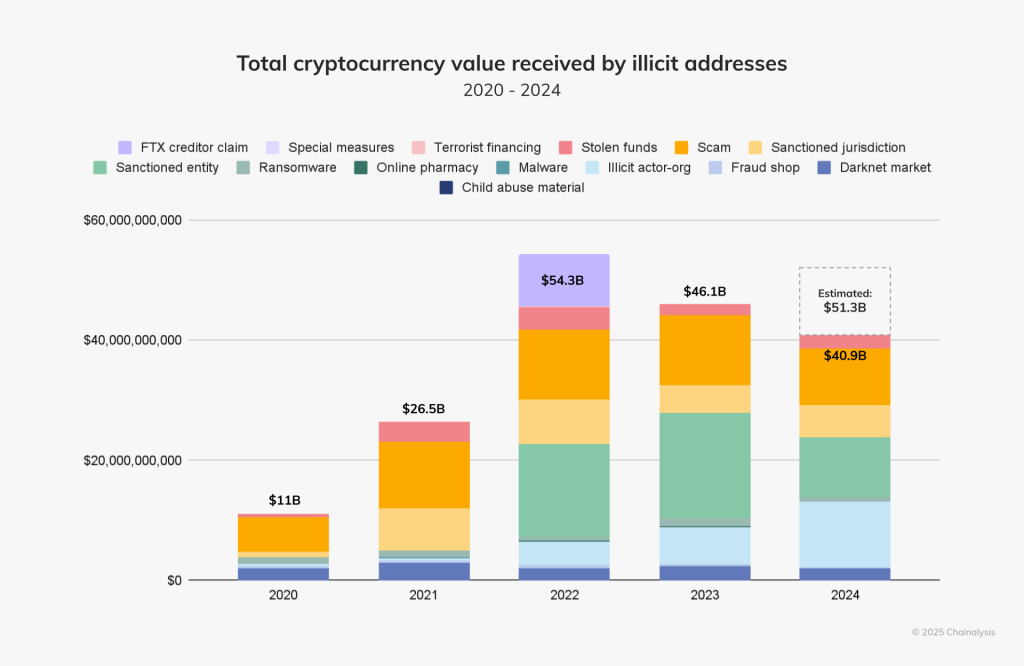US monetary establishments processed $312 billion in suspicious transactions linked to Chinese language cash laundering networks between January 2020 and December 2024, in accordance with a brand new FinCEN evaluation of 137,153 Financial institution Secrecy Act stories.
These surprisingly sudden large figures emerge as crypto exchanges face intensified regulatory scrutiny for cash laundering, regardless of conventional banking methods dealing with vastly bigger volumes of illicit funds.
FinCEN has issued an Advisory and Monetary Pattern Evaluation elevating the alarm on Chinese language cash laundering networks, which pose a big risk to the U.S. monetary system.https://t.co/QejJmzQaYw
— Monetary Crimes Enforcement Community (FinCEN) (@FinCENnews) August 28, 2025
Chinese language cash laundering networks have established subtle partnerships with Mexico-based drug cartels, exploiting forex restrictions in each international locations.
Mexican forex legal guidelines forestall massive greenback deposits in native banks, whereas China’s forex controls restrict abroad transfers by its residents. This regulatory hole permits cartels to promote illicit {dollars} to Chinese language nationals searching for to avoid Beijing’s capital controls.
The networks prolong past drug trafficking into human trafficking, healthcare fraud, and actual property purchases price $53.7 billion in suspicious exercise.
FinCEN recognized 1,675 stories involving human trafficking and 43 stories protecting $766 million in suspicious grownup day care middle exercise in New York alone.
Banks Deal with Bulk of Legal Cash Whereas Crypto Faces Warmth
Banks accounted for $246 billion of the full suspicious transactions, whereas cash service companies dealt with $42 billion and securities companies processed $23 billion.
The common annual move by US banking methods reached $62 billion from Chinese language cash laundering operations alone.
Historic instances reveal systematic banking vulnerabilities to legal exploitation.
Wachovia Financial institution laundered $350 billion for Mexican drug cartels between 2007 and 2010, receiving solely a $160 million penalty regardless of the huge scale.
Danske Financial institution processed $228 billion in suspicious transactions from Russia between 2007 and 2015, ignoring inside warnings all through the interval.
Equally, HSBC paid $1.9 billion in 2012 for permitting drug cartels to switch lots of of hundreds of thousands by accounts, with criminals utilizing specifically designed money deposit containers that match completely into financial institution slots.
TD Financial institution agreed to pay over $3 billion after prosecutors discovered the establishment had been used to launder greater than $470 million by Chinese language networks in New York and New Jersey.
In reality, relationship again to 2021, the 1MDB scandal concerned over $1 billion stolen by world banking networks, with funds used to buy luxurious actual property, yachts, and paintings throughout main cities.
Financial institution of Credit score and Commerce Worldwide laundered billions for drug cartels and corrupt governments earlier than its 1991 closure pressured stricter worldwide banking laws.
Legal organizations recruit financial institution workers as complicit insiders and use counterfeit Chinese language passports to facilitate account openings.
Cash mules typically report occupations as “scholar,” “housewife,” or “retired” throughout onboarding to clarify massive transaction volumes which can be inconsistent with their said professions.
Regulators Goal Crypto Regardless of Minimal Illicit Exercise Share
Cryptocurrency transactions signify ‘lower than 1%’ of complete cash laundering exercise globally, in accordance with TRM Labs.
In reality, Chainalysis information reveals illicit crypto volumes totaled roughly $189 billion over 5 years, in comparison with over $2 trillion laundered yearly by conventional monetary methods worldwide.

Regardless of this disparity, regulators are intensifying their enforcement actions towards crypto.
Most not too long ago, Binance Australia was required to nominate an exterior auditor inside 28 days after AUSTRAC recognized “severe issues” with its anti-money laundering controls.
French authorities have additionally launched investigations into Binance over alleged violations, whereas European regulators are contemplating penalties towards OKX following $100 million in allegedly laundered funds.
Australian enforcement expanded by systematic compliance opinions, with AUSTRAC focusing on 13 remittance suppliers whereas investigating 50 extra platforms.
The company cancelled or refused renewals for 9 suppliers that didn’t adjust to their obligations, contrasting sharply with the restricted penalties imposed on the banking sector regardless of vastly bigger suspicious transaction volumes.
Senator Elizabeth Warren continues to demand more durable crypto laws, stating, “Unhealthy actors are more and more turning to cryptocurrency to allow cash laundering.”
Nonetheless, FinCEN information reveals that Chinese language cash laundering networks primarily function by conventional banking channels slightly than digital belongings.
Blockchain analytics agency Chainalysis reported illicit crypto transactions reached $51.3 billion in 2024, an 11.3% improve, however nonetheless representing a fraction of the $312 billion in suspicious banking transactions recognized throughout the identical interval.
The publish US Banks Moved $312B in Chinese language Drug Cash, However Crypto Will get the Blame appeared first on Cryptonews.
